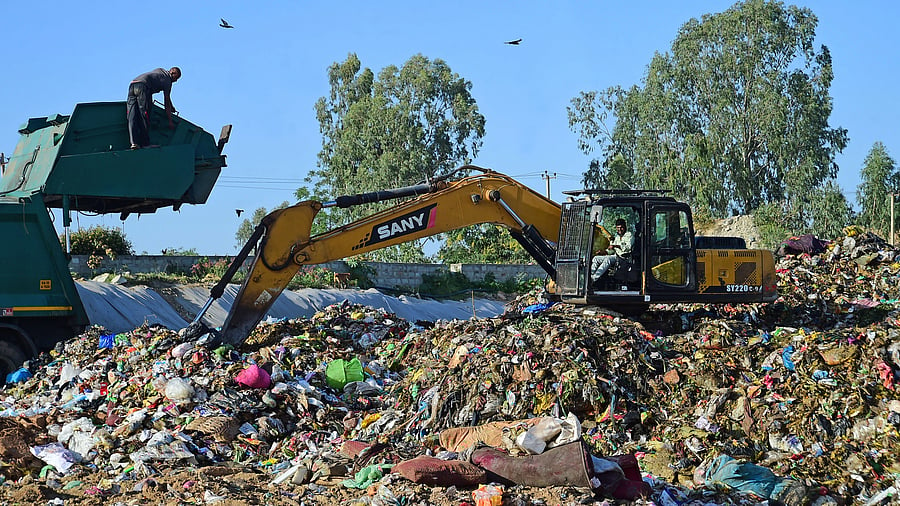
The path to a cleaner city requires a dual contract of accountability—from the government that must deliver quality services, and from citizens who must responsibly manage the waste they generate. (Representative image)
Credit: DH Photo/Ranju P
Bengaluru’s so-called ‘Kasa Surisuva Habba’, or garbage-dumping festival, has stirred a storm of reactions, exposing the deep-rooted complexities of the city’s waste management conundrum. The Bengaluru Solid Waste Management Limited (BSWML) claims that the initiative, which involves returning waste to the doorsteps of habitual offenders, targets only those who persistently dump garbage in public spaces. But what was meant as a stern wake-up call has instead become a spectacle of retributive justice. Dumping garbage outside people’s homes, even if it is symbolic, reflects civic failure more than public indiscipline.
Undeniably, citizens share part of the blame. Civic apathy runs deep in Bengaluru. Residents who casually throw waste onto the roads, believing it is someone else’s job to clean it up, expose a deep moral deficit in urban living. However, this failing does not absolve the authorities of their basic responsibilities. Before preaching discipline, BSWML and its parent body, Greater Bengaluru Authority (GBA), must first set their house in order. The agency collects a hefty solid waste management (SWM) tax each year, but its service remains inadequate and inconsistent. Deputy Chief Minister D K Shivakumar’s reference to a “garbage mafia” operating within the system is telling. If entrenched corruption and inefficiency are feeding the problem, symbolic campaigns like this mean little. Public shaming may serve as a short-term deterrent and help create awareness, but Bengaluru desperately needs a functional waste management ecosystem that works with clockwork efficiency.
The lack of dustbins in public spaces has worsened the problem. The decision to remove them, ostensibly to avoid blackspots and encourage segregation at home, has backfired. This policy ignores the practical realities of a bustling metropolis. It is plausible that IT employees working night shifts are often asleep during the narrow windows when garbage collection vans make their rounds. With no bins in sight, they are left with little choice but to dump waste on the roadside. Residents across the city also complain that collectors skip lanes, and sometimes do not turn up for days. Instead of resorting to punitive theatrics, GBA must study these ground realities. A door-to-door survey in affected areas would reveal whether the problem lies in timing, human resources, logistics, or pure citizen indifference. Enforcement should be fair, not reactive. Bengaluru’s waste crisis is not about filth on the roads; it is about filth in attitudes—both civic and administrative. The path to a cleaner city requires a dual contract of accountability—from the government that must deliver quality services, and from citizens who must responsibly manage the waste they generate.
